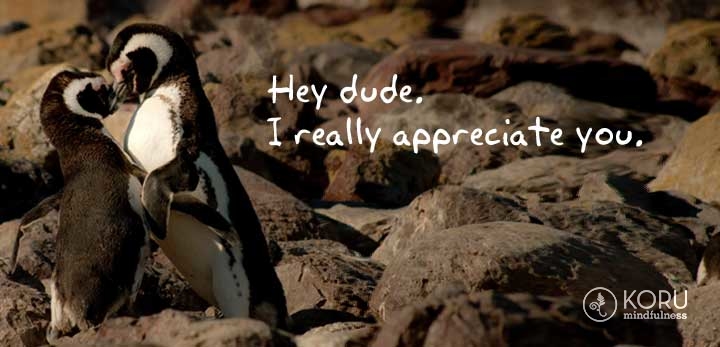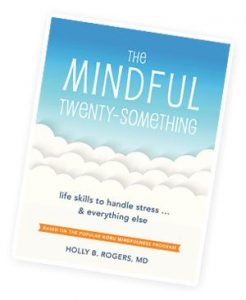
Want to know a super-secret, foolproof method for improving your relationships? You’ll find a clue to the secret in Ed’s story.
Ed said, “Since we talked about [how to make relationships better], I’ve been trying to give my roommate at least one compliment a day. It’s been hard because he’s always complaining and he drives me crazy.
“First I could hardly think of anything, I mean this guy is super annoying. Finally I was like, well he does have good personal hygiene, and that’s a really good thing in a roommate. But that was just too weird a thing to say.
“Then I thought I could give him some credit for being so quiet in the mornings and letting me sleep. It was so hard to say anything nice to him, it felt like, I don’t know, giving in to him or something.
“Finally though, I was like, “Hey dude, I really appreciate that you’re so quiet in the mornings. That’s really nice. My old roommate used to wake me up all the time.” He looked at me sort of weird and I felt pretty much like an idiot.
“The next day he gave me a message from a friend who had stopped by, and I told him how much I appreciated him doing that. It seemed to get easier each day, and I swear, I’m not feeling so annoyed with him anymore. And he seems more chill too, like maybe me saying nice things to him made him nicer to me. So things are better and that’s cool.”
It seemed to get easier each day, and I swear, I’m not feeling so annoyed with him anymore. And he seems more chill too, like maybe me saying nice things to him made him nicer to me. So things are better and that’s cool.
The Improve-Your-Relationship Secret
Ed was putting into action the secret improve-your- relationships tip that we had talked about in our Koru class the week before.
Here’s the tip: Compliment more and criticize less.
John Gottman from the University of Washington discovered that the overall amount of conflict in a relationship was irrelevant. A stable and happy relationship can have any amount of conflict so long as the ratio of positive to negative interactions was at least 5:1. This formula works with all of your relationships: bosses, employees, teachers, roommates, lovers, mothers, brothers, friends. Everyone. If you are able to do this, your relationships will be healthier and you will be happier.
Mindfully Overcoming Your Negativity Bias
Intentionally finding the good in the people around you is a potent mindfulness exercise. Because of our mind’s powerful negativity bias—the tendency to see bad things much more readily than good ones—it’s much easier to notice the things we don’t like in other people. You have to be fully on your mindfulness game to balance this bias, and pick up on all those interactions that are delightful, funny, and kind—and then remark on them.
Once you start noticing the good, the next step is to actually share the love, which can be surprisingly hard, as Ed discovered. But once you get started, it can turn into a fun and rewarding enterprise.
Don’t Forget Your Girlfriend (or Boyfriend)
Learning to see the good in others and say it aloud is a great skill that can smooth all your connections. It’s especially valuable in your most intimate relationships. You may assume that your partner knows how smart or attractive or funny you think she is, but if you don’t say it clearly to her, she may only hear from you when you have a complaint or nag. Remember, she has a negativity bias as well, which is why she will need to hear five expressions of adoration to make up for each grouse or grumble.
Unless we balance our complaints with extra compliments, over time resentments build up that erode the foundations of our relationships. When we speak our appreciations aloud, it helps remind us what we value in our friends, lovers, and family and helps them to feel valued as well.
Share the Love
If you want to improve your relationships, develop the habit of sharing compliments, and get started on it right now.
Give the next person you see an authentic compliment. Notice something you admire
or appreciate about him and tell him. Do this three times every day for the next week; it could be the same person or a different person each time.
Have fun with it and be creative. Stay curious about what happens to your feelings towards the recipients of your compliments.
Make sure you come back and tell us what happened in our comments section!
Excerpted from the Mindful Twenty-Something by Holly Rogers, New Harbinger, 2016.
Photo by Paz Arando on Unsplash

Old habits die hard. Although complimenting has significant benefits for both the giver and receiver, it is easy to slip back into old patterns. Thanks for this helpful reminder. I’m all up for sharing the love and noticing the negativity bias